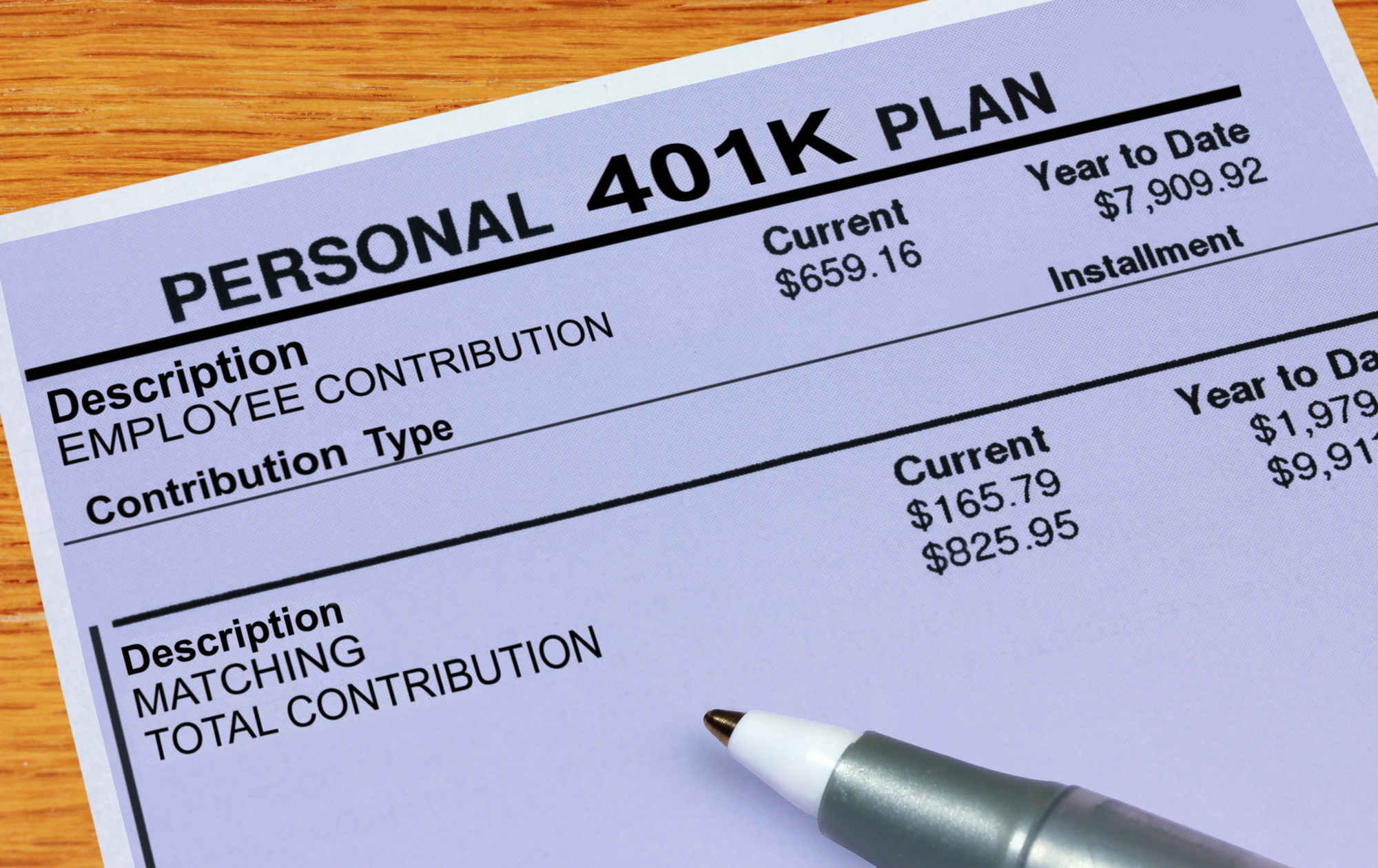Typically, all retirement accounts have named beneficiaries and do not go through your will. That being said, you do have to name the beneficiaries. If you do not have named beneficiaries, then most likely, the account will pass by your will. If you do not have a will—then the state you live in dictates what happens.
Continue readingLeaving your 401k After Separation From Employment
There are pros and cons to leaving your 401k plan with your previous employer that should be evaluated before any moves are made. This is not an exhaustive list, just some main points to get you thinking about things that are involved.
Continue readingROTH IRA’s – Why the Hype?
There has been a lot of talk in the media recently about ROTH IRA’s, Backdoor ROTH IRA’s, and Mega Backdoor ROTH IRA’s? The biggest reason for this is because we are in such a low tax environment. Do we know what the tax landscape will look like when we need the money? No, but we do know that now we are dealing with low rates, and we can choose to pay these low rates and deal with what we do know.
Continue readingFee Only vs Fee Based
You’ve probably heard of fee-only financial advisors. But what does this mean? When you invest with a fee only advisor, you can be confident that your best interests are their priority because there’s no incentive to push products or services just to make money.
Continue readingTips for Keeping Your Home WiFi Secure
With so many devices connecting to your home wifi and all the “smart” devices that are coming out, you’re more exposed than ever. This post will teach you how to keep your home network secure.
Continue readingCybersecurity and your accounts
This digital world has brought us all kinds of conveniences to our lives. Like all things, it does come with some obstacles such as cybersecurity. I was at a conference a few years ago and attended a Cybersecurity session because I saw that they were discussing the dark web and I was quite curious. In this session, I found out that in other countries hackers go to a place of work and have normal 9-5 jobs where they go there to hack and do illegal things. This blew my mind. So, the next time you get a spam call, just think that they are probably sitting at their day job!
Continue readingBuying or Selling Your Home
With interest rates so low, many people are taking advantage of this time and buying new homes so that they can lock in a low mortgage rate for 30 years. The advantage to locking in a low interest rate when purchasing (or refinancing) is that the principal and interest is fixed. You may have seen a notice each year from your mortgage company increasing your monthly payment slightly. This is because your total mortgage payment is made up of PITI—Principal, Interest, Taxes, and Insurance. Generally, your property taxes and your home insurance costs go up a little each year. The majority of your monthly payment is tied to your principal and interest which is why it is a good idea to lock that interest rate portion in as low as you can.

Capital Gains
With the increase in housing prices this past year, many people are capitalizing on this and selling their homes. If you have a large gain on your home, it is possible that you may owe capital gains taxes. Many years ago, the rule was that if you used the sale proceeds from your primary residence to purchase another primary residence, then you did not owe any capital gains tax. The current rule with proceeds from the sale of your primary residence has limitations. First, you must have lived in the home for at least 2 out of the last 5 years. If this applies, then you can exclude $250,000 from capitals gains tax if you are filing single or $500,000 if you are married filing joint. These are large numbers but depending on how long you have lived in your home and where you are located, you may still have a taxable gain on your property. If you have ever rented your property, you have other rules with depreciation recapture to consider as well.

Cost Basis
If you think you may be above the excludable limits, then you should look at all your costs to make sure you are including everything allowable in that gain calculation. How do you do that? Start with your cost basis. Your cost basis is the purchase price of your home plus any costs associated with that purchase, such as certain closing costs—title fees, legal fees, recording fees, surveys, transfer taxes and title insurance. Then add to your cost basis any improvements you made to your home. Improvements add value to the property or adapt it to new uses. Some improvements are adding rooms, putting in a new system, adding a roof, etc. What is not included in your cost basis are repairs. Check out Publication 523 on the irs.gov site for more guidance with improvements versus repairs.
Cost Basis = Purchase Price + Purchase Fees + Improvements-Depreciation recapture
Your sales price is the selling price less fees paid to sell it (including real estate commissions and fees associated with selling).
Sales Price –Cost Basis = Gain or Loss
If have a gain in excess of the $250K/$500K limits, then you may have to pay capital gains taxes.

Reporting
Also, note that sometimes your gain or loss is reported on a 1099-S Form for tax purposes. This form, like other 1099’s, is sent to the IRS. So, if you did not report the sale along with your costs, you could receive a bill from the IRS. Do not panic, often times it is just a reporting issue. Make sure you go back to your tax return to see if you have a Form 8949. If you do not, you may have to complete that form, or it could just be a response to the IRS letter you receive.
This was a lot of information but can be an important factor in your Financial Plan. If you have any questions or need assistance with your financial life and goals, schedule an appointment with us today—this is what we do!
Financial Journey LLC is a registered investment advisor offering advisory services in the state of Virginia and in other jurisdictions where exempted. Information provided is for educational purposes only and not, in any way, to be considered investment or tax advice.
Refinance
Interest rates are low and house prices are soaring—so, should you refinance?
What Factors Should You Consider?
There are many factors involved in the refinancing decision—your current interest rate and term, where you are in the lifecycle of your loan, what loan you want to apply for, the cost to refinance, your breakeven for recouping that cost and your monthly cash flow considering your new payment are just to name a few. Of course, this also assumes you plan on staying in your home for the near term as well.

Compare Your Amortization Schedule
There are different ways to analyze all these factors. You can go to websites that have amortization calculators (such as bankrate or nerdwallet) to look at your current amortization schedule and compare it to a new one with the new terms. It is not always about the total monthly payment. Look at the breakdown of the monthly payment and see how much is going to principal and interest. When you start a new loan, the interest is front loaded-meaning most of your payment goes to interest, not reducing your loan balance. If you think you are only going to stay in your home for another 5 years, then look at your principal balance at the 5-year mark and factor in the cost for obtaining the new loan.

PMI Insurance
In today’s housing market, home values are soaring. If you did not have a 20% down payment, you may be paying PMI (mortgage insurance). With increased home values, you might be able to refinance and have your PMI removed. This could be savings in your pocket in addition to an interest savings.
The moral of the story is that there are different reasons to look at refinancing options–both financial and emotional—and there are different factors involved with these decisions. No situation is the same. Navigating these types of decisions, in line with your unique personal goals, is what we do here at Financial Journey for our clients. If you are looking for a trusted partner to help you navigate these types of decisions, we are here to help. Schedule a meeting with us today to see how we can help you with your own financial journey.
Financial Journey LLC is a registered investment advisor offering advisory services in the state of Virginia and in other jurisdictions where exempted. Information provided is for educational purposes only and not, in any way, to be considered investment or tax advice.
Biden’s Tax Plan
Following are some highlights from Biden’s Tax Plan. Some have been enacted with proposals for extension and others are still proposals.
Child Tax Credit
- Enacted for 2021 (starts phasing out for single tax filers at $75K and married filing joint at $150K)
- $3600 for children under 6
- $3000 for children ages 6-17 (previously children aged 17 were excluded)
- 50% of the eligible credit can be received with monthly installments from July thru December of 2021
- Proposal to extend this thru 2025

Child & Dependent Care Credit
- Enacted for 2021
- Up to $4000 for one child
- Up to $8000 for two or more children
- Proposal to extend permanently
Federal Income Tax Rates
- Current Top Tier is 37% Federal. The proposal is to make the top tier 39.6%

Capital Gains Tax Rates-Proposed
- For individual earning more than $1M, the top 20% would be the same as the ordinary income rate of 39.6% PLUS the existing net investment income surcharge of 3.8% PLUS state tax
- Qualified Dividends for high earners would also be at this new capital gains rate
- This CAN be passed retroactively
No Step Up In Basis
- This proposal has to do with inherited assets. For example, if your parent passes away with a house currently worth $500K, under current law the beneficiary’s new basis in the inherited house is the current date of death value–$500K.
- The proposed change is to not increase the basis. So in the same house scenario above, the basis would be whatever the parent paid for the home. So if the parent paid $100K for it, that would be the basis. This matters when you sell the home. You will have to pay tax on the gain. In the first scenario, there would be no tax. In the second scenario, there would be tax on $400K.
We will have to see what sticks with Congress and plan accordingly. Taxes are just one piece of your financial plan that you navigate through on your Financial Journey. Every situation is different and some of these will not affect you. The important part is sticking to your plan and revisiting it on a regular basis to make sure you are on track with your goals and what is most important for you.
Financial Journey LLC is a registered investment advisor offering advisory services in the state of Virginia and in other jurisdictions where exempted. Information provided is for educational purposes only and not, in any way, to be considered investment or tax advice.
Health Savings Account
A Health Savings Account (HSA) is an account that you can fund for medical expenses when you are enrolled in a high deductible health plan. This can be a great tool to pay for medical expenses tax free. A high deductible health plan has certain parameters to meet in order to qualify. If you are a healthy individual and rarely go to the doctor, this is a great savings tool for you.
Continue reading










